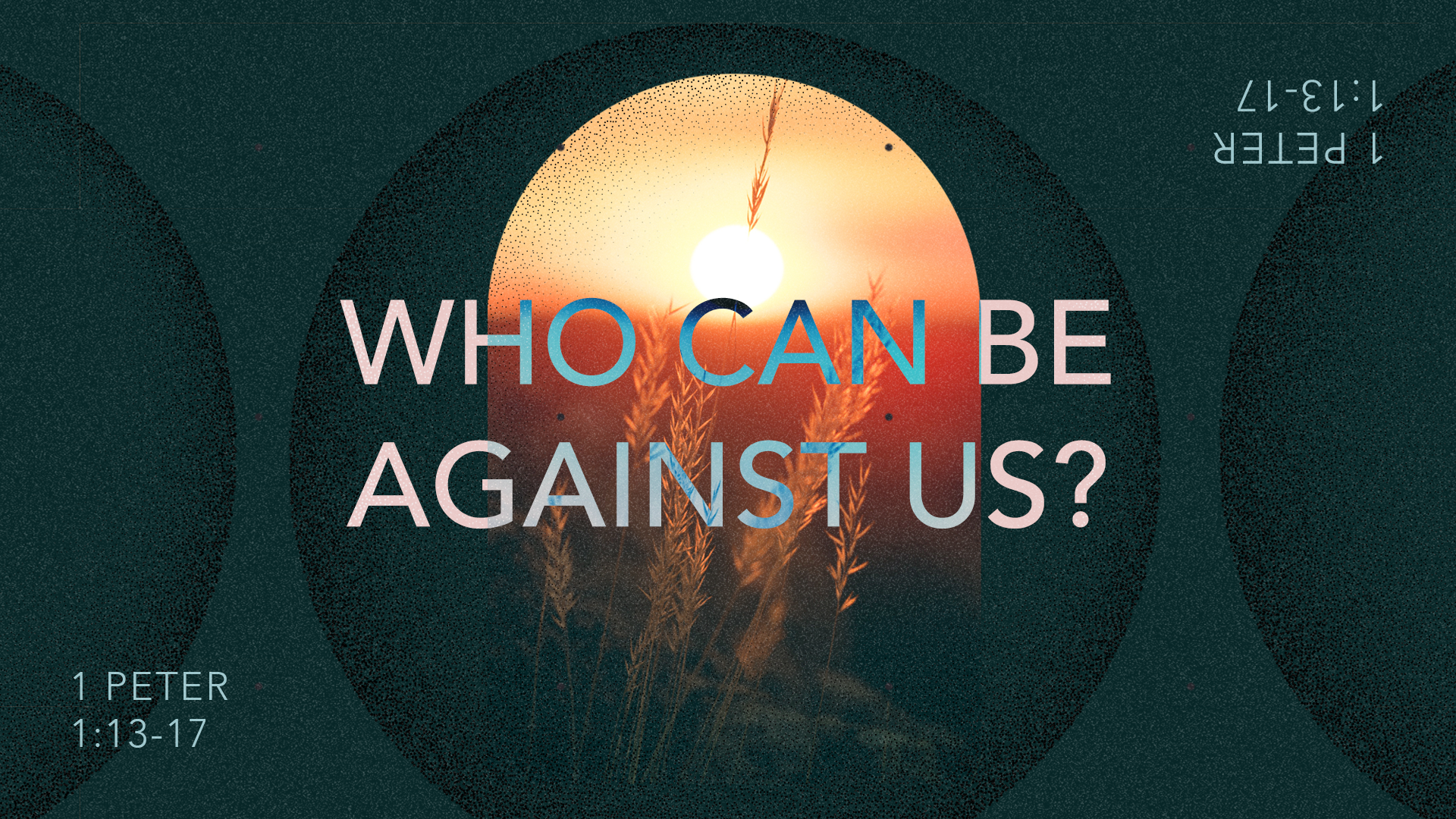Pray Then Like This
Website Editor • June 3, 2020
From Pastor Ryan Lewis's message on Matthew 6:5-18:
You are probably familiar with the feeling. You know you need to pray, but the words don't come and your thoughts are clumsy. You try, but God feels distant and you suspect your prayers are stopping at the ceiling. You feel guilty about this and it inhibits your prayers even further. So you stop praying or it becomes a dull routine. God doesn't feel near.
If this is you, there is hope for you yet.
Jesus assures us that we don't have to be stuck here! In Matthew 6, He goes so far as to give a step-by-step guide for how to pray.
The Lord's Prayer is a framework for what our prayers should look like. It sets the example that when we pray, our full attention should be on God. Jesus gives us the model in two parts: the first focusing on God's glory, the second focusing on man's needs.
Part 1: God's Glory
Our Father, who art in heaven.
When we pray, our attention should be fully focused on God and who He is. God's Fatherhood is not all-inclusive. It is reserved for those who have been adopted into His family, through faith and hope in Jesus. If this is you, call on Him as Father.
Hallowed be your name.
We are to honor and attribute to God the Holiness that is already His. We are to draw Him into every thought, word, and action in our lives and to concern ourselves with His glory. (1 Corinthians 10:31)
Your kingdom come.
We are to pray for God's kingdom. Our prayer should focus on God's sovereignty, dominion and reign -- for His kingdom to be built and not ours. The best way to pray for a person or a cause, is for God's kingdom to be advanced through them.
Your will be done.
We are to pray for God's will. We are to ask for God's work in us and in others to be revealed according to His will, on earth and in heaven. God is not a genie in a bottle that we should only come to when we have a need -- no! He is the sovereign Lord of the universe who has invited us into relationship with Him. We must come to Him because we love Him and because of what He has done for us. (John 14:15)
Part 2: Man's Needs
Give us this day our daily bread.
We are to pray for God's provision. Though God already knows what we need, He still wants us to ask Him. Martin Luther described "bread" as being all things that are essential for life -- not only food, but a healthy body, a home, a healthy wife and children, a healthy government, peace, et cetera. We are to be completely dependent on God to provide for us, knowing that every good gift is from Him alone.
Forgive us our debts as we also have forgiven our debtors.
We are to pray for God's forgiveness. We must acknowledge that we are sinners in need of a Savior. John MacArthur said it well, “Sin is that which separates man from God, and is therefore man’s greatest enemy and greatest problem. Because man’s greatest problem is sin, his greatest need is forgiveness, and that’s what God provides.”
As believers, we must confess our sins to God daily as part of our sanctification journey.
“If we say we have no sin, we deceive ourselves, and the truth is not in us. If we
confess our sins, He is faithful and just to forgive us our sins and to cleanse us from all unrighteousness.” -- 1 John 1:8-9
To the second part of this statement, this is a prayer that assumes that since we have experienced God's forgiveness, that we have extended that forgiveness to others. As forgiven sinners, we are to be forgiving sinners.
And lead us not into temptation but deliver us from evil.
We are to pray for God's protection. Until we meet Jesus face-to-face, we will never be fully sanctified or immune to sin. We must pray diligently for his protection over our flesh and our tendency to sin. The truth is that we have an enemy and we cannot face him alone. We must go to the Father and ask Him for help in this.
-
The words Jesus gives us are not empty rhythms to recite and repeat, but life itself! He shows us the way to draw near to the Father. He gives us a pathway to glorify Him and align our lives with His will for us.
For His is the kingdom, the power, and the glory forever.
Amen.
See this prayer in action on matters of current events, here.
Watch this sermon, here.
--
Resources
- Adults: A Simple Way to Pray by Martin Luther
- Kids: The Barber Who Wanted to Pray by R.C. Sproul

Notes from Ky Martin's sermon on Sunday, June 8, 2025. Sermon text: 1 Peter 4:1-6 Prepare to suffer Is. 50:6-8a I gave my back to those who strike, and my cheeks to those who pull out the beard; I hid not my face from disgrace and spitting. 7 But the Lord God helps me; therefore I have not been disgraced; therefore I have set my face like a flint, and I know that I shall not be put to shame. 8 He who vindicates me is near. The martial language indicates that discipline and grit are needed to live the Christian life, particularly in view of the suffering believers encounter. -Thomas R. Schreiner Some people won’t like you if you follow Jesus When a culture abandons biblical standards, when extramarital sex, cohabitation, and birth outside of marriage become normal, people attack the church for its moral snobbery and judgmentalism. Peter warns us that if we do take a stand, we need to expect slander, not applause. -Daniel M. Dorian This is one of the hardest things a new Christian has to face. Your friends liked you because you shared in “the same flood of debauchery.” It seemed great fun at times, but then you came to embrace Christ… But your friends have not… They will be surprised when you say “No.” -Juan Sanchez. Keep an eternal perspective Our outcome is glorious Suffering is good for us Let’s remember that suffering accomplishes God’s purposes. It exposes what or whom we are trusting (1 Peter 1:6–7). - Juan Sanchez Ecc. 7:2 It is better to go to the house of mourning than to go to the house of feasting, for this is the end of all mankind, and the living will lay it to heart. Discipleship Questions: Verse 1 tell us to arm ourselves by thinking as Christ did about suffering. How did Christ arm himself for and against sufferings? What does it look like for us to do that? Have you ever lost friendships (or had them change) because you were following Jesus? Do you fear that we (or our kids) will experience greater persecution in the future? If yes, how should we handle that fear?

Notes from Lance Shumake's sermon on Sunday, June 1, 2025. Sermon text: 1 Peter 3:18-22 Jesus suffered and died in order to bring us to God Jesus conquered death by his resurrection “A wonderful text is this, and a more obscure passage perhaps than any other in the New Testament, so that I do not know for a certainty just what Peter means.” —Martin Luther Problem #1 - he went and proclaimed to the spirits in prison —Jesus preached through Noah to those who lived at that time (1 Peter 1:10–12) —Jesus proclaimed His victory to evil angels (see Genesis 6:1-4) Problem #2 - baptism now saves you —Scripture is clear - we are saved by grace not works —baptism pictures our salvation from God’s judgment through the resurrection of Christ “The waters of baptism, like the waters of the flood, demonstrate that destruction is at hand, but believers are rescued from these waters in that they are baptized with Christ, who has also emerged from the waters of death through his resurrection. Just as Noah was delivered through the stormy waters of the flood, believers have been saved through the stormy waters of baptism by virtue of Christ’s triumph over death.” —Thomas R. Schreiner, 1, 2 Peter, Jude —in baptism we are appealing to God for a good conscience "This appeal is an act of the heart looking away from itself and from all human instruments and calling on God, appealing to God, for grace to save.” —John Piper —in baptism we are pledging to God to live in a manner worthy of the gospel Jesus ascended to heaven and now reigns over everything “We can face suffering as Christians with confidence rather than panic, and hope rather than despair, because the road marked with Christian suffering is, no matter what its twists and turns are, the road to vindication and glory. The God who vindicated Jesus will vindicate you, and he will sustain your faith until that day.” –Juan R. Sanchez, 1 Peter For You Discipleship Questions: How does Jesus’ death and resurrection encourage us when we suffer? Why did we need Jesus to suffer and die to bring us to God? How does Jesus’ victory over death give us eternal hope? What are your thoughts regarding some of the problems in this passage? How does what Peter says about baptism elevate the importance of baptism? When were you baptized and how does this passage inform your understanding of baptism? How does knowing our victory is secured help us with all the things this life throws at us?

Notes from Ky Martin's sermon on Sunday, May 25, 2025. Sermon text: 1 Peter 3:13-17 Nobody can (truly) hurt Christians Psalm 118:6 The Lord is on my side; I will not fear. What can man do to me? Rom. 8:31 What then shall we say to these things? If God is for us, who can be against us? The train of thought is as follows: “No one will be able to harm believers on the future day if they are zealous for good” (v. 13). Indeed, even present suffering is not a sign of punishment but of blessing both now and especially in the future, on the day when God rewards his people with eternal life. -Thomas R. Schreiner Honoring Christ Erases Fear Share your faith with strength and gentleness Embrace balance Be prepared to share The truth of the gospel is a public truth that can be defended in the public arena. This does not mean, of course, that every Christian is to be a highly skilled apologist for the faith. It does mean that every believer should grasp the essentials of the faith and should have the ability to explain to others why they think the Christian faith is true. -Thomas R. Schreiner Be prepared to suffer “I’ve spent a number of years in India and Africa where I found much righteous endeavor undertaken by Christians of all denominations; but I never, as it happens, came across a hospital or orphanage run by the Fabian Society [a British socialist organization], or a humanist leper colony.” -Malcolm Muggeridge Be bold! We will likely suffer as Christians in this world, but that suffering is slight and temporary compared to the eternal inheritance that awaits us. The worst thing that can happen to us is that we die and receive our promised inheritance. Can you imagine how emboldened Christians would be if we only believed what Peter is saying? -Juan R. Sanchez Discipleship Questions: Does the fact that nobody can (truly) harm us comfort you? What would change if we lived like we really believe that? Are you a more confident person as someone who knows Christ? Does your security in Christ embolden you to take some risks in life, knowing that the worst that could happen is death? How equipped / prepared are you to give a reason for the hope that you have? What would grow your confidence and competence in that? Have you considered joining Michael Clark one day for evangelism at the harbor? Well….you should….


